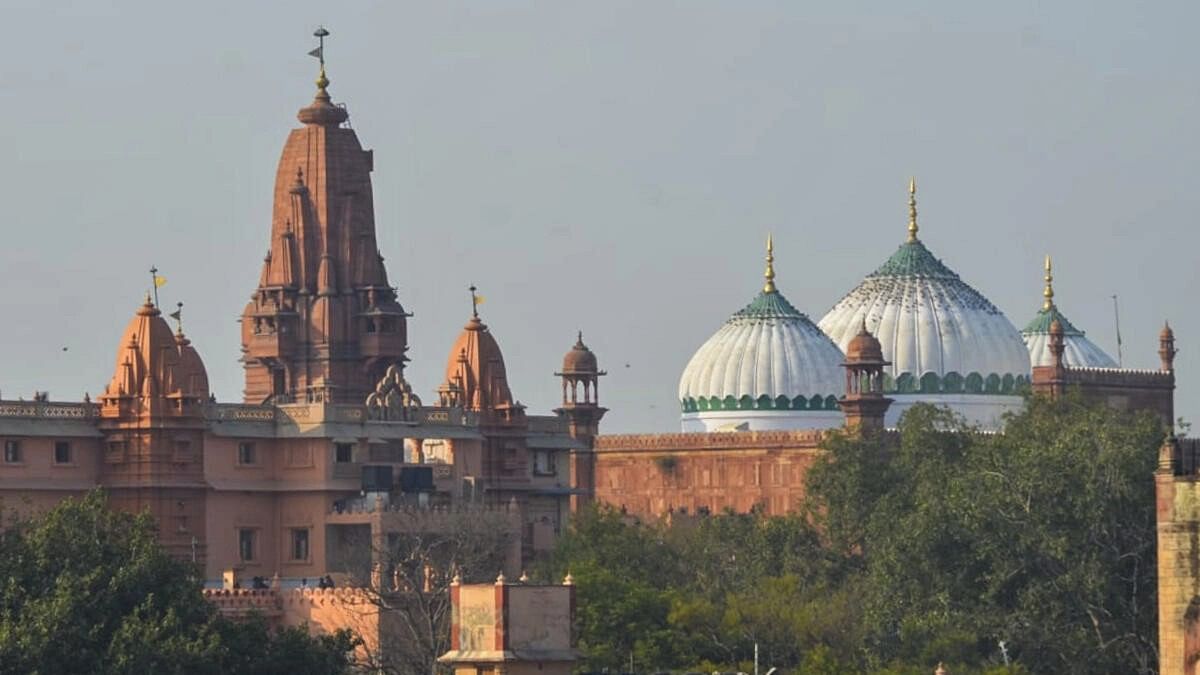
Shahi Idgah mosque and Shri Krishna Janmabhoomi Temple, in Mathura.
Credit: PTI Photo
Lucknow: In a significant revelation, which the Hindu plaintiffs in the Shri Krishna Janmabhoomi-Shahi Idgah Mosque case claimed could be "crucial evidence'', the Archeological Survey of India (ASI) has said that a Hindu temple at the site of the Krishna Janmabhoomi had been 'demolished' by the Mughal emperor Aurangzeb and a Mosque was built there.
In response to an RTI query filed by one Ajay Kumar, a resident of Uttar Pradesh's Mainpuri district in this regard, the ASI, without specifically mentioning Shri Krishna Janmabhoomi, cited a gazette notification issued in 1920 by the British regime and said that the Keshavdev Temple, which was said to be part of the Krishna Janmabhoomi Temple Complex, had been demolished to construct a Mosque.
The response to the RTI query was furnished by ASI's Agra circle, according to the reports. Ajay Kumar had sought to know from the ASI if the Keshavdev Temple had been demolished by Aurangzeb to construct the Mosque.
In its response the ASI has also attached the excerpts of the 1920 gazette notification.
The lawyers for the Hindu plaintiffs in the Shri Krishna Janmabhoomi-Idgah Mosque case said that they would submit the ASI's response to the RTI query as evidence in the Allahabad high court which would hear the matter on February 22.
The Allahabad high court had earlier transferred all the cases pertaining to the Shri Krishna Janmabhoomi-Shahi Idgah Mosque dispute to itself.
In its order the court had said that the cases were concerned with the faith and beliefs of both Hindus and Muslims and that there could be delay in their disposal if they continued to be heard in the lower court. A total of seven cases pertaining to the Shri Krishna Janmabhoomi-Shahi Idgah Mosque in Mathura were currently pending in different courts in Mathura when the directive of the high court was given.
The Hindu petitioners contended that the Shahi Idgah Mosque had been built by the Mughal emperor Aurangzeb after demolishing a part of the Shri Krishna Janmabhoomi and claimed ownership over the entire 13.37 acres of land on which they were situated. They have also challenged the 1968 agreement between the Shahi Idgah Mosque Committee and the Shrikrishna Janmabhoomi Trust allowing the Mosque to continue to exist and use the land on which it was situated.